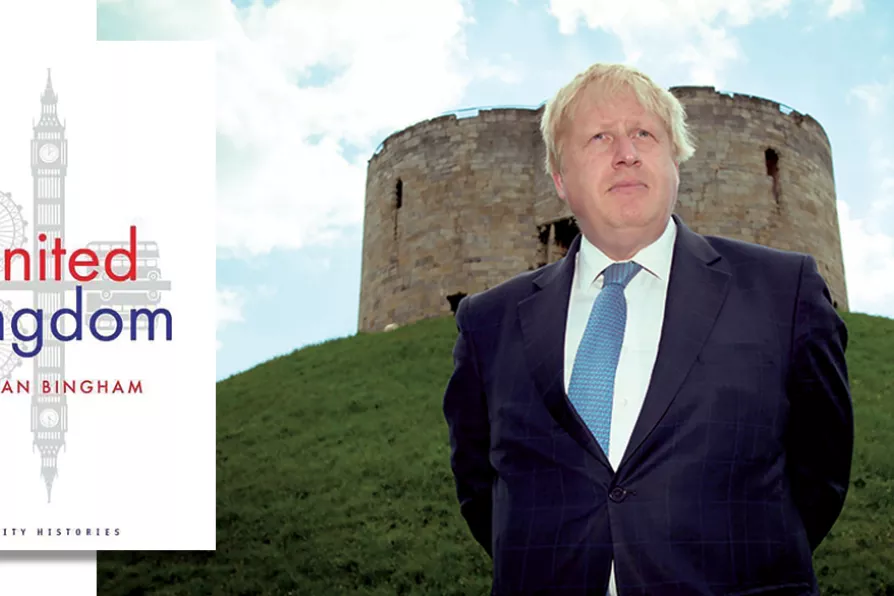JOHN GREEN, MARIA DUARTE and ANGUS REID review Fukushima: A Nuclear Nightmare, Man on the Run, If I Had Legs I’d Kick You, and Cold Storage

 DELUSIONS OF GRANDEUR: Boris Johnson pictured in front of Clifford's tower in York while on a Vote Leave campaign
DELUSIONS OF GRANDEUR: Boris Johnson pictured in front of Clifford's tower in York while on a Vote Leave campaign
United Kingdom
by Adrian Bingham
Polity £12.99
THE convulsions being induced in the United Kingdom by its latest Conservative psychodrama are a timely example of the underlying theme woven throughout this book.
They are a dramatic illustration of the secular decline of a country badly failed by its political establishment, so limited in their vision they have been unable or unwilling to fashion a narrative about a collective future compelling enough to escape an omnipresent past.
The absence of that narrative, while largely survivable as the country grasped temporary lifelines to mitigate the loss of empire — Commonwealth trade, the EU, Cold War alliances — may now have created the conditions for a terminal fever to consume a prostrate patient.

GAVIN O’TOOLE welcomes, and recommends a a candid, evidence-based record of Britain’s role in the slaughter visited by Israel upon the Palestinians

GEORGE FOGARTY is captivated by a brilliant one-man show depicting life in HMP Strangeways

RON JACOBS salutes a magnificent narrative that demonstrates how the war replaced European colonialism with US imperialism and Soviet power










